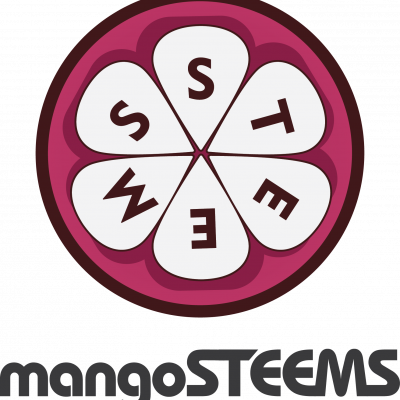Sessions / Location Name: Room I
Virtual Location
Virtual: You cannot enter virtually via this page. Click on the titles of individual presentations or go to the Live Page
Improving the Confidence of EFL Students Writing Skills Using Smart Templating Software #1437
Learning English essay writing as an EFL student can be challenging especially if the conventions of essay writing in the student’s native language, such as Japanese are different. EssayJack’s smart writing templates provide structure and delineate the conventions for English academic essay writing with options for educators to customise the templates to provide varying levels of writing guidance and instructions including choice of transition sentences, tips, interrogative prompts, video, and audio files according to student writing proficiency. Studies of students who have used the platform show that it increased writing confidence and reduced writing anxiety as it demystifies how to organise and what to write for an essay in English.
Practical solutions for assessing and evaluating young adults in remote teaching contexts #1632
Macmillan
In this practical session, John will revisit the differences and challenges of assessment and evaluation in the remote teaching context. Through examples from modern coursebooks, participants will explore a variety of practical methods for approaching assessment and evaluation of the four skills at different points in the learning process. This session will focus on young adults but many of the ideas will be relevant for younger age groups.
TeacherTools.Digital: The Language Teacher's LMS that belongs to you #1630
As language teachers, we face many frustrations and complications in delivering our lessons. These frustrations have only multiplied in the post-pandemic world.
Technology can help, but often presents its own problems. Unintuitive or overly complex interfaces. Lack of functionality. Lack of features specifically designed for language teachers.
TeacherTools.Digital, on the other hand, has been designed by language teachers for language teachers. Each teacher gets their own account, with their own classes, student lists, and activities.
TeacherTools.Digital offers 8 innovative activity types that cover all four skills of speaking, writing, listening, and reading, and empowers teachers to deliver both new and existing content in a variety of contexts, including online, blended, hybrid and even face to face.
In this presentation, the designer and developer of TeacherTools will demonstrate and explain how the platform helps teachers to create engaging and effective language learning activities quickly and easily.
Join Paul Raine, a 15 year veteran in Japanese university classrooms, to find out how TeacherTools can both reduce teacher stress and improve student engagement in a variety of language teaching and learning contexts.
Smartphone writing fluency: The case of Saudi EFL students #1490
The process of writing has undergone a fundamental shift in the past few decades with the proliferation of smartphones, which required the advent of an entirely new system of input, distinct from both handwriting and keyboard-based typing. This input method, tapping, has largely been ignored by cognitive researchers to date, perhaps due to the misconception that tapping is synonymous with typing. The current study follows precursor research which investigated writing fluency (i.e., transcription speed) on smartphones. A total of 150 Saudi EFL students engaged in transcription tasks in their L1 (Arabic), or an L2 (English), either on smartphone or by hand. Their times-on-task were compared, showing slower times for writing on smartphones for both groups. However, these differences only reached statistical significance under the L2 condition. Qualitative surveys revealed that students felt the benefits of smartphones (e.g., spellcheck, ease of storage/transmission) outweighed their apparent drawbacks (e.g., smaller sizes, slower speeds). Many students commented on their beliefs that both schools and students needed to adapt to modern times and become better at incorporating smartphones into classwork. Implications for language teachers and learners, particularly under remote learning conditions, and qualitative responses will be discussed.
FREE international vocabulary study tournament for your classes #1628
A FREE Team Challenge Vocabulary Study Tournament will start on June 14th and end on July 25th. Winning teams will receive virtual trophies and merchandise awards. Thousands of students in hundreds of classrooms from seven countries have participated in our prior Team Challenge tournaments. Participating students will learn from 1,500 to 5,500 new high-frequency words over the six-week tournament period. Best of all, because high-frequency words occur so often in both authentic and inauthentic English (eg graded readers) your students' newly learned words are highly likely to be repeated, reinforced, and internalized through multiple near-future encounters in your classroom and beyond. All participating students will be provided with 8 weeks of free access to the WordEngine online mobile vocabulary study application. All participating teachers will receive free progress reports and tournament updates for their teams. This presentation will answer your questions about the next FREE Team Challenge Tournament and take reservations from those who wish to participate.
A new outlook on assessment #1500
Since the lockdown many teachers have been wondering about the best ways to assess their students through the four language skills. Teachers have tried many tools and got lost in the maze. Some teachers reverted back to the usual paper-based assessment tools, while others did them online, not sure of their success while others made a hybrid type of assessment but not yet totally satisfied. As has already been mentioned in The JALT CALL Journal, teachers need to focus “on how [to] achieve specific goals by applying unique pedagogical innovations around [their] classroom’s technology usage,” thus through the experience gained during lockdown, I would like to help teachers with technological tools that would help them assess their students’ work more effectively, achieve the curriculum objectives and thus give them a push with learning the language. In this presentation, I will use the new CEFR Companion Volume to show teachers/attendees how to use it for student assessment. I will also show the five online tools like Vooks, Wordwall, Beta, .... etc. that can help them do assessments for the four language skills as successfully as possible.









